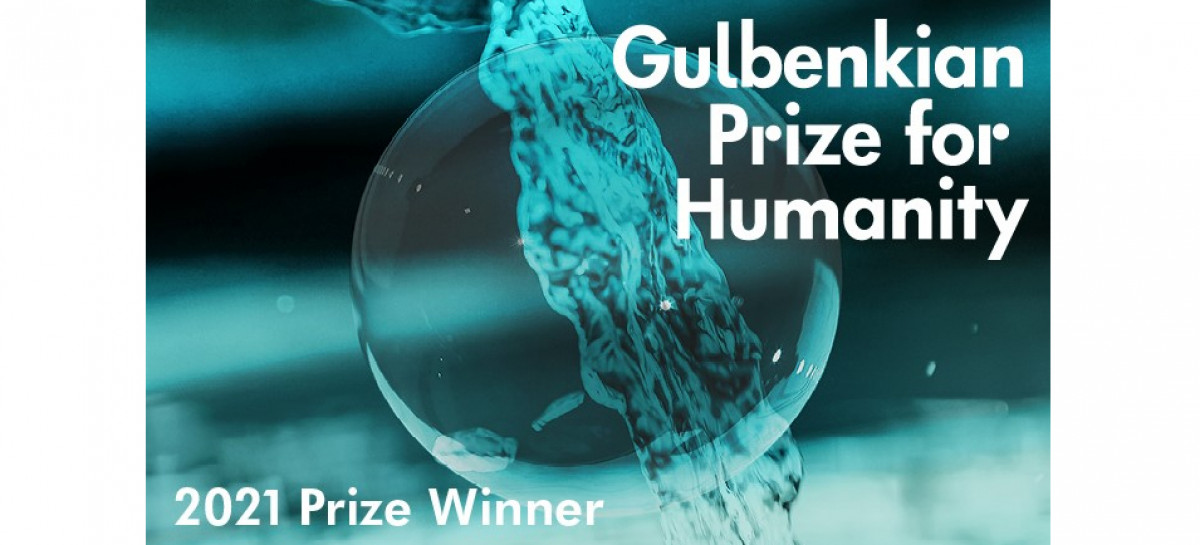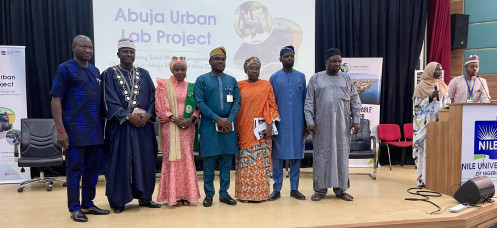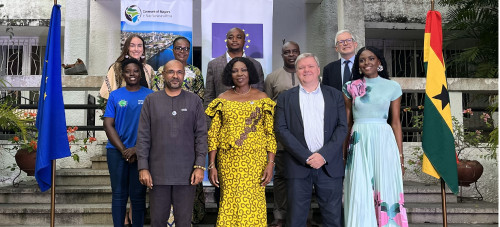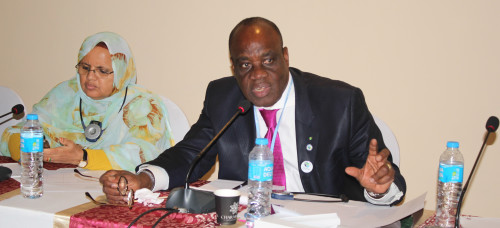City of Garoua in Cameroon to benefit from the Gulbenkian Prize for Humanity awarded to GCoM
Published: 9 Nov 2021

Glasgow, Scotland (9 November 2021): Today, the Global Covenant of Mayors for Climate & Energy (GCoM) was awarded the Gulbenkian Prize for Humanity during a ceremony held at the COP26 conference along with 1M Euro to finance projects in sub-Saharan Africa.
The jury of the 2nd edition of the Gulbenkian Prize for Humanity selected GCoM for its unmatched ability to enhance and help city leaders in advancing a low-carbon economy and society across thousands of cities and local governments worldwide. The Prize will provide support to raise voluntary climate mitigation and adaptation actions with a special focus on two projects in Africa, as the continent faces challenges associated with climate change that pose a major threat to communities in the region.
The 1M Euro will be used to advance critical infrastructure to support climate mitigation and adaptation efforts in two African countries. The projects were selected based on their potential impact and on their high degree of climate ambition to contribute to climate resilience and the energy transition. More concretely, five cities in Senegal will be able to improve their supply of drinking water to combat climate impacts such as droughts, while in Cameroon, the city of Garoua will be awarded funds to support the development of energy efficiency solutions.
As a signatory of the Covenant of Mayors in Sub-Saharan Africa (CoM SSA), Garoua is also a member of the Global Covenant of Mayors, a network of more than 11,000 cities committed to fight climate change. The impact of the current crisis pushed the city to elaborate a Sustainable Energy Access and Climate Action Plan (SEACAP) and become more resilient. In fact, the area is exposed to several environmental threats: the dry season is becoming longer and, when it rains, it can be with such intensity that floods occur. In addition, Cameroon’s growing population demands more energy as the country becomes increasingly urban.
To protect the environment and secure the access to clean energy for the future generations, Garoua wants to quickly put in place green and resilient infrastructure. Therefore, several studies have been completed in recent years to verify the technical feasibility of using solar energy. This reflects existing opportunities for street lightning upgrades in Cameroon as local governments are aware that electricity used for this purpose represents a considerable portion of their expenditures and new technologies would improve energy efficiency while reducing costs.
As a result, two different sub-projects have been identified:
(i) the renovation of the existing lightning network in the three communes of the Garoua agglomeration; and
(ii) the extension of the network by adding 1,000 new fixtures. The expected impact on energy efficiency is very favourable, limiting greenhouse emissions and directly improving the living conditions of the citizens - for instance, by improving the safety of pedestrians, or allowing street vendors and traders to extend their working hours. Calculations show that the renovation project would provide a power reduction of 347 kw; energy savings of 1,500 MWh per year; and avoid 389 tons of CO2 equivalent greenhouse gas emissions.
However, the city cannot undergo these changes alone as the resources of local communities are among the lowest in Africa and particularly in Cameroon.
The mayor of the city, Dr. Ousmaila Mohamadou Bobboy expressed his happiness with the fact that “the funds of the Gulbenkian Prize for Humanity will be used to help Garoua and other cities in Sub-Saharan Africa go beyond their climate plans and put in place sustainable projects that will help their populations”.
The projects will be carried out in close collaboration with the Covenant of Mayors in Sub-Saharan Africa (CoM SSA), the Deutsche Gesellschaft für Internationale Zusammenarbeit (GIZ) and the European Investment Bank (EIB). “We equally appreciate” – continued the mayor – “the long-term technical assistance of CoM SSA to help cities correct their energetic deficiencies through strategies and projects ready to receive funds”. Furthermore, GIZ is exploring crowdfunding opportunities and has committed additional funds for a media campaign.





